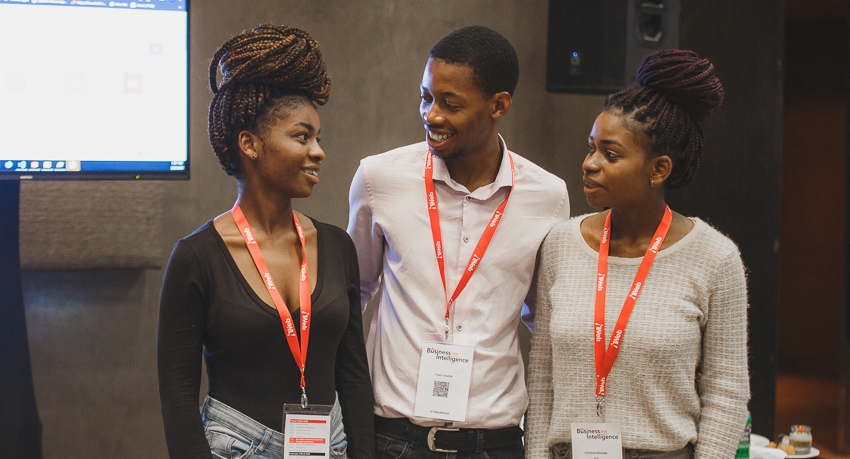Guardian Health, a maternal and foetal health solution, has won the inaugural ITWeb Business Intelligence Summit data hackathon.
The 36-hour ‘datathon’ was hosted in the build-up to ITWeb’s BI Summit 2020, which concludes today in Sandton.
The winning solution, inspired by the Master's degree research of team member Tsitsi Marote, beat 22 other teams to claim the top spot.
It’s about more than winning
"I learnt how expectant mothers are not able to find out about foetal abnormality until they're at least 22 weeks pregnant. It made me curious because I knew there had to be a way of finding something like this out earlier," said Marote.
She experimented with ultrasound and computer vision as a way to detect foetal abnormalities sooner, but wasn't happy with the graphics generated from either test. That's when she approached her partner, Tino Manhema. They ended up developing Guardian Health, an application to be used by healthcare professionals. It helps assess the risk of foetal abnormalities (such as slowed heart rate) and also gathers data such as a mother's blood pressure, heart condition and age to predict the likelihood of her needing a C-section delivery.
"This is a data-driven system,” said Manhema. “Our models were deployed on Google Cloud. We wanted to come up with a solution that would use existing data so we can offer this to health institutions and exchange their data for our insights.
"Guardian Health empowers healthcare professionals, helping them find out the risks of a pregnancy much earlier and without needing to see the patient's health records."
The duo agreed that making connections and learning new skills in the build-up to and during the hackathon had been the real win.
One of Manhema's highlights of the hackathon, which was hosted at Unisa, was having mentors available on hand to give advice throughout development. "Now we're going to push the product, working with experts to find out how our solution fits into their field."
The datathon was held in partnership with Geekulcha. Gabriel Cassim, the youth ICT organisation’s open data lead, said what set Guardian Health apart from other solutions was the way they used historical data and machine learning. "The problem they're trying to solve is a real-world issue, it’s applicable and their application was pieced together well.
"Their use of ML made it possible to extract data and make predictions."
Runner-ups
Team AgriCode took second place. Theirs is an application meant to help subsistence farmers by providing environmental data to improve crop yields.
The POPIA-compliant app runs on any phone that can access the Internet and offers freemium and subscription models. Premium subscribers enter their location and will be given real-time data of all their farms, including soil moisture, expected rainfall, cattle grazing patterns and the best crops to grow on each farm.
AgriCode uses IoT sensors to gather humidity and temperature samples as well as third-party weather APIs to make predictions.
"Our weather forecast only goes up to 14 days. We'd like to change this, but we need funding for it," the team said.
K (no) w_COVID19 took third place. This is a system that uses an interactive world map to show reported cases of the virus around the world, and track how many people from these affected areas have been to South Africa recently. Nkosana Mabuza is the co-founder of Lepsta.tech, a software tool that syncs code to the cloud, and worked alone in developing the application.
"I scraped data from ACSA and StatsSA to create a map that shows a country’s reported infections and how many people from that country have been to South Africa since the virus was first reported in December," he said.
"I became interested in data when I realised how much we can do with it, like using it to improve decision-making. If the initial cases of Corona had been reported in time, the spread might have been contained, but with the information we have now as citizens, we can equip ourselves."
The winnings
Besides the opportunity to connect with mentors and industry insiders and pick up new skills, the winning teams walked away with cash prizes sponsored by ITWeb— the topteam won R20 000 to further develop their app, while the second and third runners-up received R10 000 and R5 000 respectively.
The ITWeb/Geekultcha hackathon was supported by the Centre for Public Service Innovation, which sponsored the catering and provided laptops for participants, as well as the UNISA School of Computing, which provided the venue.


